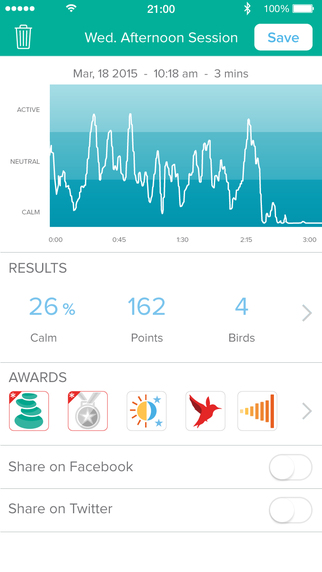 Toronto-based InteraXon has raised $11 million for its smartphone-connected brainwave sensing device, called Muse, according to an SEC filing.
Toronto-based InteraXon has raised $11 million for its smartphone-connected brainwave sensing device, called Muse, according to an SEC filing.
InteraXon previously raised $7.2 million in two rounds from Horizon, OMERS Ventures, A-Grade, which is Ashton Kutcher's fund, Felicis Ventures, and ff Venture Capital, according to TechCrunch. TechCrunch also reported that, in February 2014, Google had approached InteraXon about an acquisition, but InteraXon wasn't interested.
This new round brings InteraXon's total funding to at least $18.2 million.
Muse is a device, worn on the head, that aims to help users train their brains. The device has seven sensors and detects five bands of brainwave activity: delta waves, which are most present during sleep; theta waves, which are associated with sleep and deep relaxation; alpha waves, which indicate the user is relaxed; beta waves, which are present when the user is actively thinking or problem-solving; and gamma waves, which are occur when involved in higher mental activity.
The device's first app, called Calm, guides users through focused attention training exercises so that users can decrease their stress and anxiety while improving focus. The app will provide users with feedback during a training session, after the session is over, and over time based on the user's history.
The app gives users feedback about their brain during these brain training sessions "by translating your brain signals into the sounds of wind," the company explains on its website. "When your mind is calm and settled, you hear calm and settled winds. When your mind is active the winds will pick up and blow" Users train their brain in this exercise by learning to keep the winds calm.
The Muse device is available for $299 on the company's website, or at Best Buy, Bloomingdales, Amazon, and Gaiam.
The company raised $287,000 on Indiegogo back in December 2012 and was subsequently on display at CES. At the time, they were offering the device for pre-order for $200.
While there are a number of brain training offerings currently on the market, one of the more high-profile, called Melon, was recently acquired by DAQRI, an enterprise augmented reality company founded in 2010, for an undisclosed amount.













